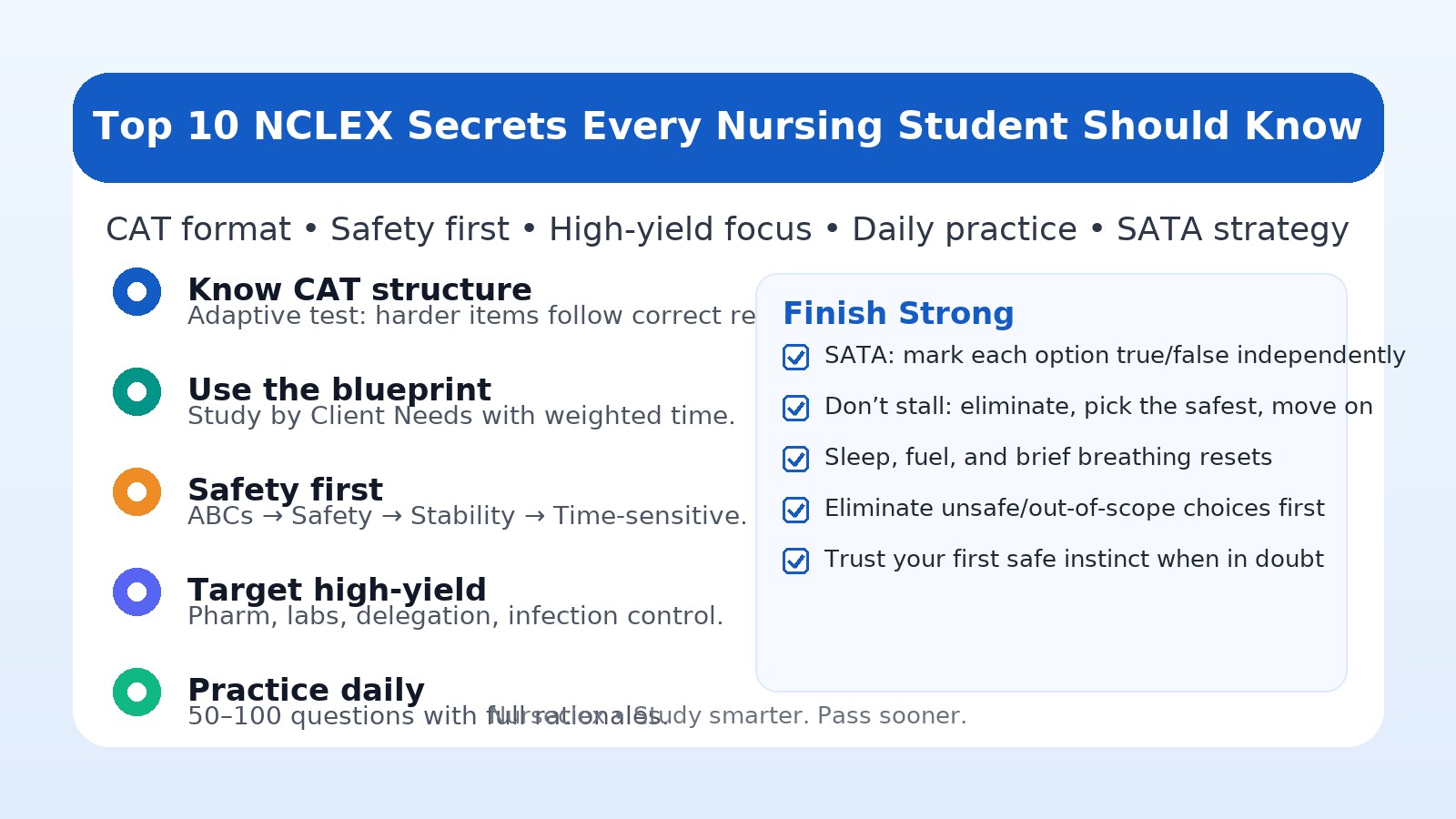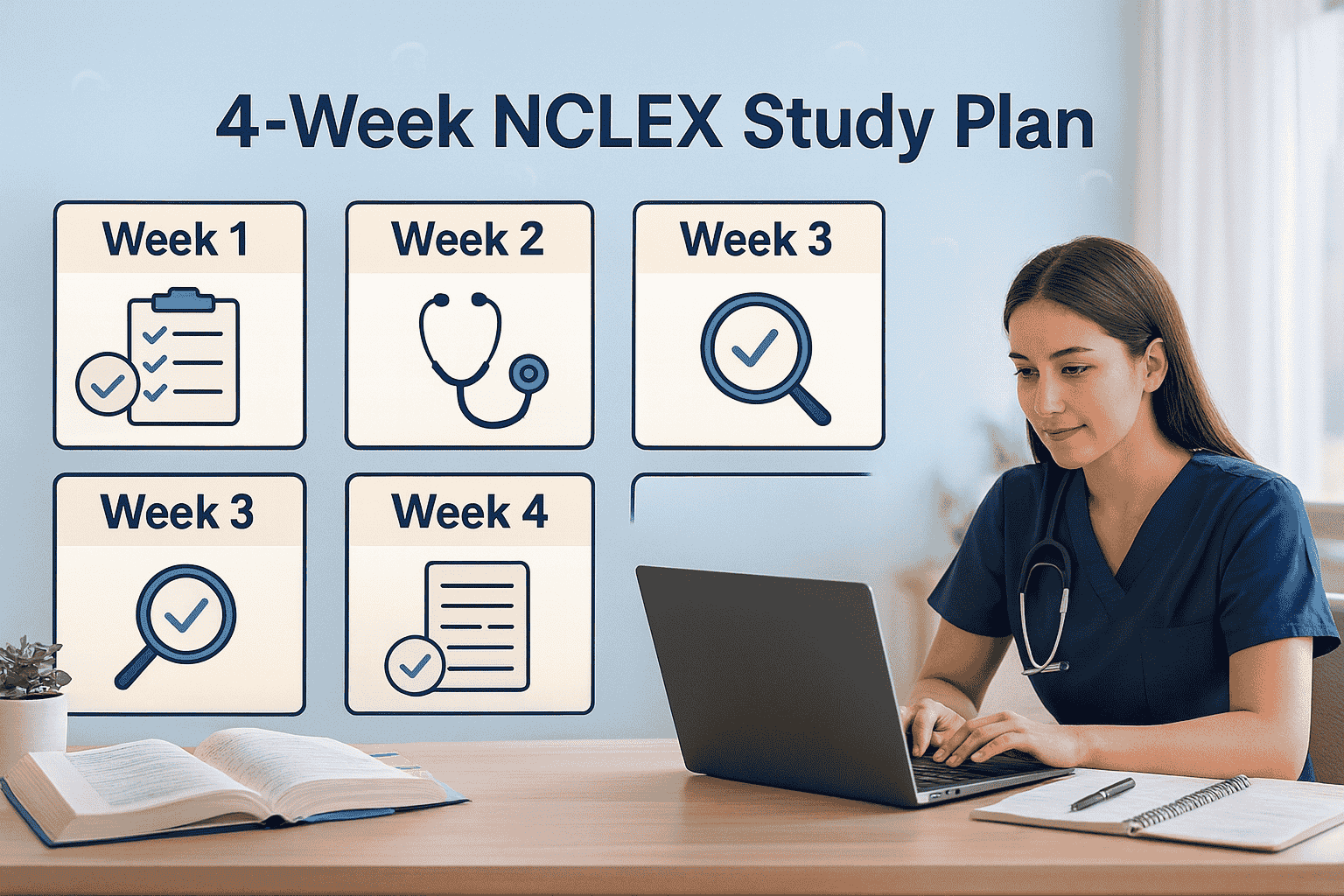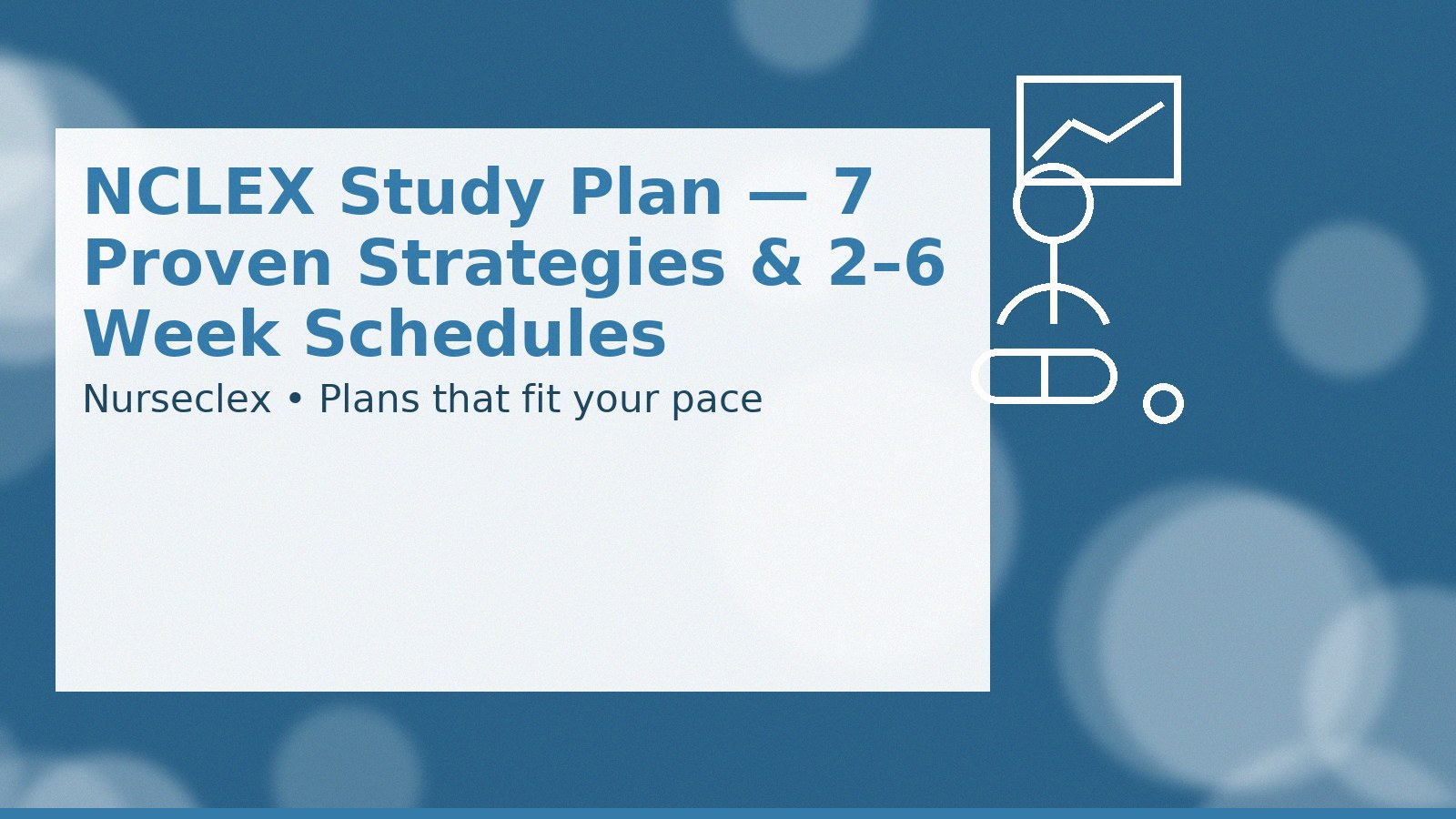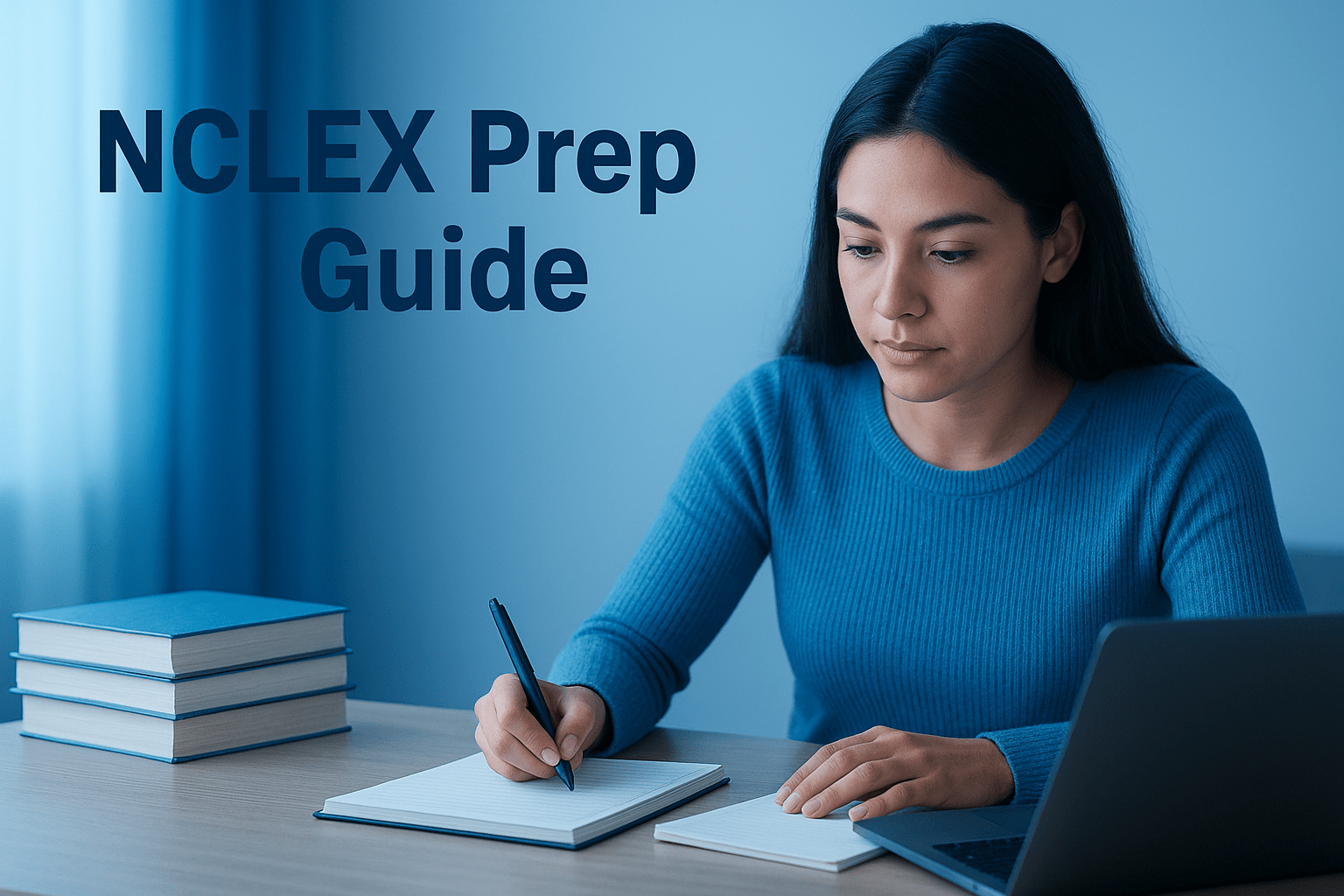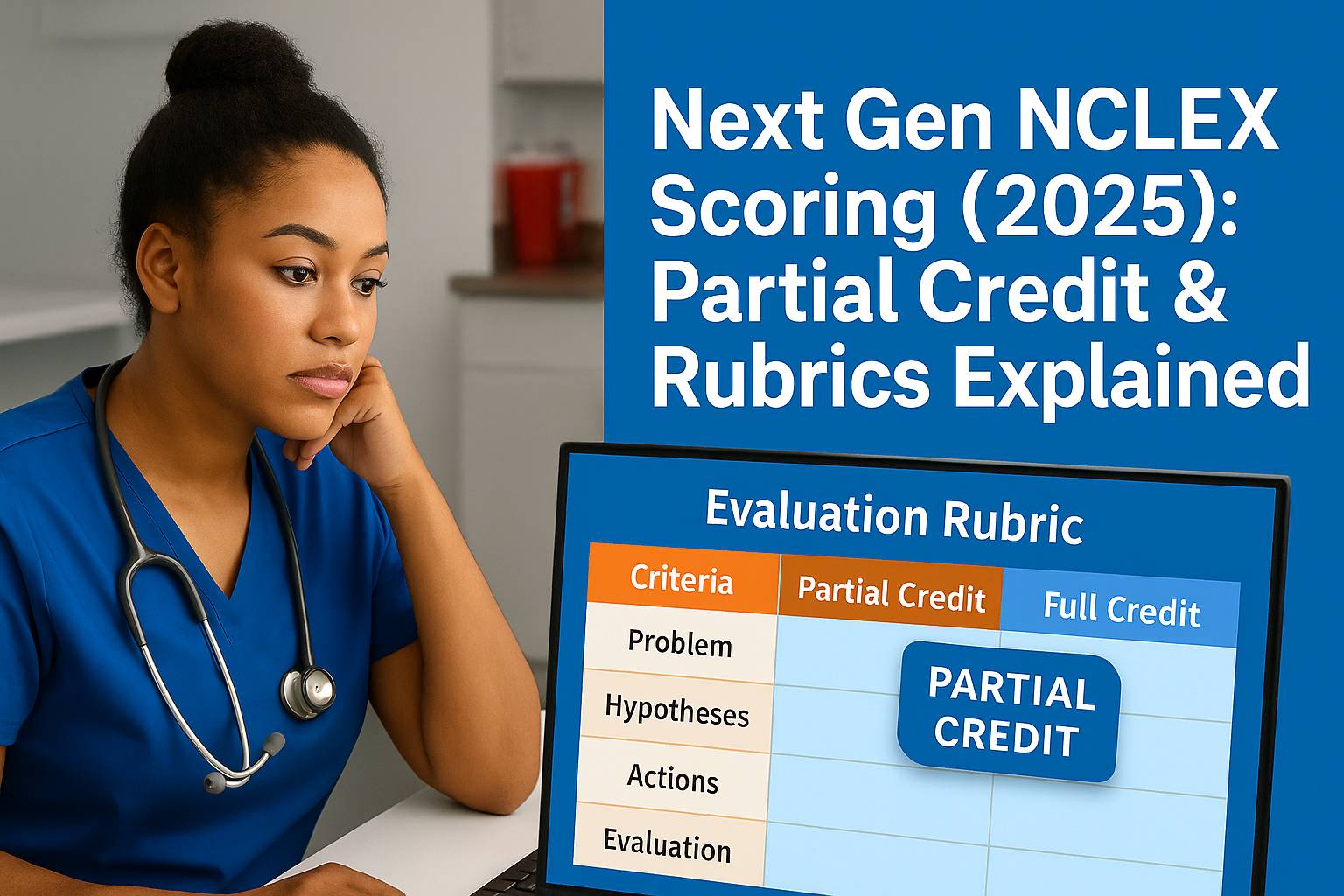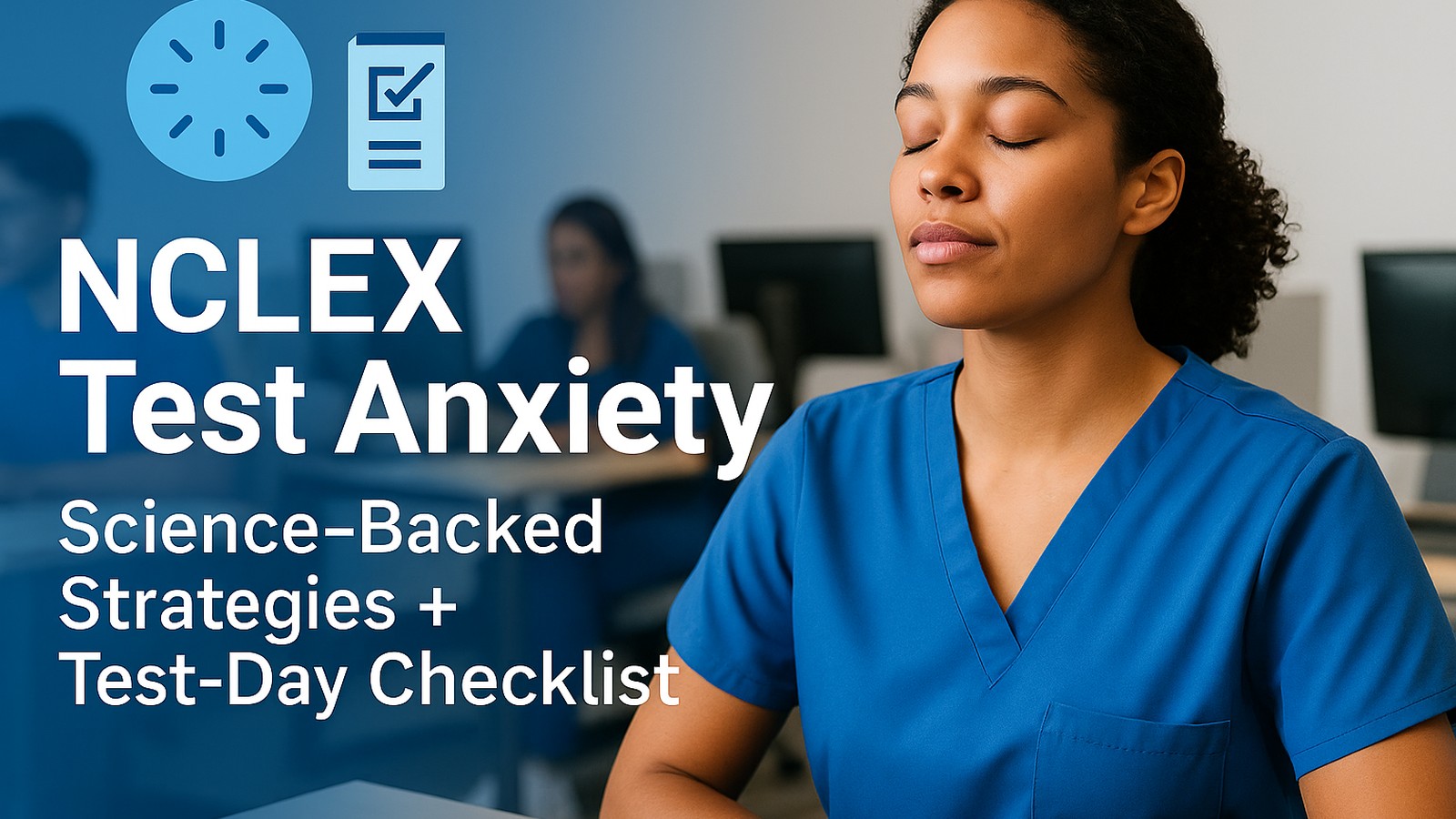Preparing for the NCLEX can feel overwhelming—but the right NCLEX secrets will boost your confidence and your score. The exam doesn’t just test recall. It measures how you apply nursing knowledge to keep patients safe. Use the 10 tips below to study smarter and choose the safest actions on test day.
NCLEX Secrets #1: Know the CAT structure
The exam uses Computerized Adaptive Testing (CAT). Answer correctly and items get harder; miss one and they get easier. The test ends when the algorithm is confident you’re above or below the passing standard.
Do this: Try an adaptive run so the format feels familiar. See CAT Simulation →
Key takeaway: Understanding CAT reduces test-day anxiety.
NCLEX Secrets #2: Use the official blueprint as your map
Content is organized by Client Needs: Safe & Effective Care Environment, Health Promotion & Maintenance, Psychosocial Integrity, Physiological Integrity. Weight your time by these domains.
Do this: Plan your week by Client Needs. See Study Plans →
Review the NCSBN Test Plan (official reference).
Key takeaway: Let the blueprint guide your priorities.
3) Think “safety first” on every item
If two answers look right, pick the one that prevents harm or stabilizes the patient. Assessment often comes before intervention—unless the patient is unstable.
Do this: Apply ABCs → Safety → Stability → Time-sensitive. See Analysis & Prioritization
Key takeaway: The safest first action usually wins.
4) Focus on high-yield topics
High-impact areas show up everywhere:
-
Pharmacology (prototypes, adverse effects, monitoring)
-
Prioritization & Delegation
-
Safety & Infection Control
-
Pediatrics & Maternal Health
Do this: Tackle weak zones first, then spiral review. See NCLEX Pharmacology 2025 →
Key takeaway: Master content that most affects patient safety.
5) Practice with NCLEX-style questions (daily)
Reading notes ≠ performance. Drill 50–100 questions/day with full rationales. Track misses by content vs. strategy.
Do this: Use the QBank Hub for mixed and focused sets →
Key takeaway: Rationale-driven practice builds clinical judgment.
6) Master SATA with true/false thinking
Treat each option as true or false. Select only those that are safe, indicated, and match the stem’s timing/priority.
Do this: Run small SATA sets and review why each choice is in or out.
Key takeaway: Evaluate options independently to improve accuracy.
7) Don’t stall—protect your pacing
Stuck? Eliminate unsafe or off-priority choices, pick the safest remaining option, and move on.
Do this: Time your blocks and glance at the clock every ~30 questions.
Key takeaway: Momentum matters in CAT.
8) Prime your brain: sleep, fuel, calm
Memory consolidates during sleep. Avoid night-before cramming. Hydrate, eat light, and use brief breathing resets to lower stress.
Do this: Schedule rest days in your plan.
Key takeaway: Your brain is part of your equipment—treat it well.
9) Use elimination to raise your odds
Knock out unsafe, out-of-scope, or off-priority options first. Between the final two, choose the one that best protects airway, perfusion, or neuro.
Do this: Add a quick “unsafe scan” to each item.
Key takeaway: Elimination + safety lens = better picks.
10) Trust your training (and avoid second-guess spirals)
Your first safe instinct is often right—especially after structured practice. Change an answer only if you spot a specific reasoning error.
Do this: Journal “never again” patterns after each block (e.g., “taught before stabilizing”).
Key takeaway: Confidence comes from systems and reps.
Mini checklist for test day
-
Read the stem twice; name the priority problem.
-
Apply ABCs → Safety → Stability → Time-sensitive.
-
Eliminate unsafe/out-of-scope choices first.
-
Stabilize before teaching.
-
After choosing, ask: Does this action improve safety now?
Your next step
Run a mixed 30-question set (with 5–10 SATA), log misses by content vs. strategy, and retest those items within 24–72 hours. Want structure and analytics that adapt to you? Dive into the QBank Hub → .
Final word: These NCLEX secrets help you protect patient safety while boosting your score. Study with purpose, practice daily, and go in confident—you’ve got this.
